All Stories
-
 Climate
ClimateWorst drought in a millennium predicted for central and southwest U.S.
Comparing reconstructions of past drought conditions with models of future dryness shows that the Central Plains and Southwest U.S. will become the driest in a millennium.
-
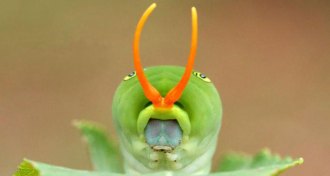 Animals
AnimalsTiger swallowtail genome gives clues to insect’s stinky defense
Clues within the genetic code of the Eastern tiger swallowtail butterfly (Papilio glaucus) explain how it developed a smelly defense against predators.
-
 Animals
AnimalsWhen you’re happy and you show it, dogs know it
A new test using pictures of halves of human faces challenges dogs’ abilities to read people’s emotions.
By Susan Milius -
 Genetics
GeneticsAncient East Asians mixed and mingled multiple times with Neandertals
East Asians’ ancestors interbred with Neandertals more than once, explaining why modern East Asians carry more Neandertal DNA than Europeans do, two studies suggest.
-
 Psychology
PsychologyScientists of a feather flock together
When it comes to major scientific issues such as global warming and GMOs, scientists and the public don’t see eye to eye. It might be because socially, they don’t see each other at all.
-
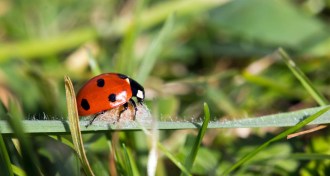 Animals
AnimalsWasps may turn ladybugs into zombies with viral weapons
Parasitic wasps may use a neurological virus to make ladybugs their minions, a study posits.
-
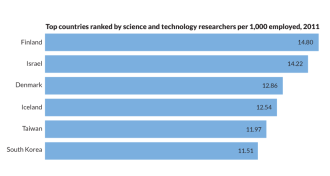 Science & Society
Science & SocietyU.S. research workforce lags by some measures
Scientists’ share of total employment is lower in United States than in 16 other countries.
-
 Health & Medicine
Health & MedicineU.S. measles tally for 2015 now at 121 cases
The 2014–2015 measles outbreak in the United States has now reached people in 17 states and the District of Columbia.
By Nathan Seppa -
 Health & Medicine
Health & MedicineGlowing amino acid lights up growing brain cancer
By adding a tracer compound that sticks to the amino acid glutamine, researchers may be able to discern and monitor cancerous tissues in the brain.
By Nathan Seppa -
 Astronomy
AstronomyStellar nursery gives birth to quadruplets
Four young stars, still in their cocoons, show that binary and other multiple star systems form together.
-
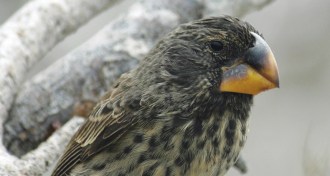 Life
LifeThe genetic evolution of Darwin’s finches
A genetic analysis divides Darwin’s finches into more species and uncovers a gene involved in determining beak shape.
-
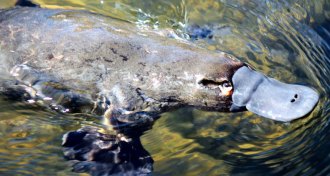 Animals
AnimalsCats and foxes are driving Australia’s mammals extinct
Since the arrival of Europeans in Australia, a startling number of mammal species have disappeared. A new study puts much of the blame on introduced cats and foxes.